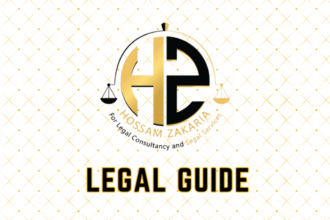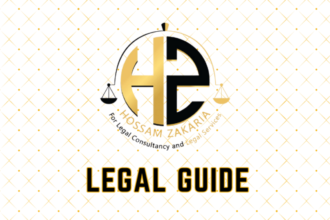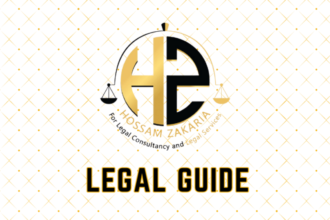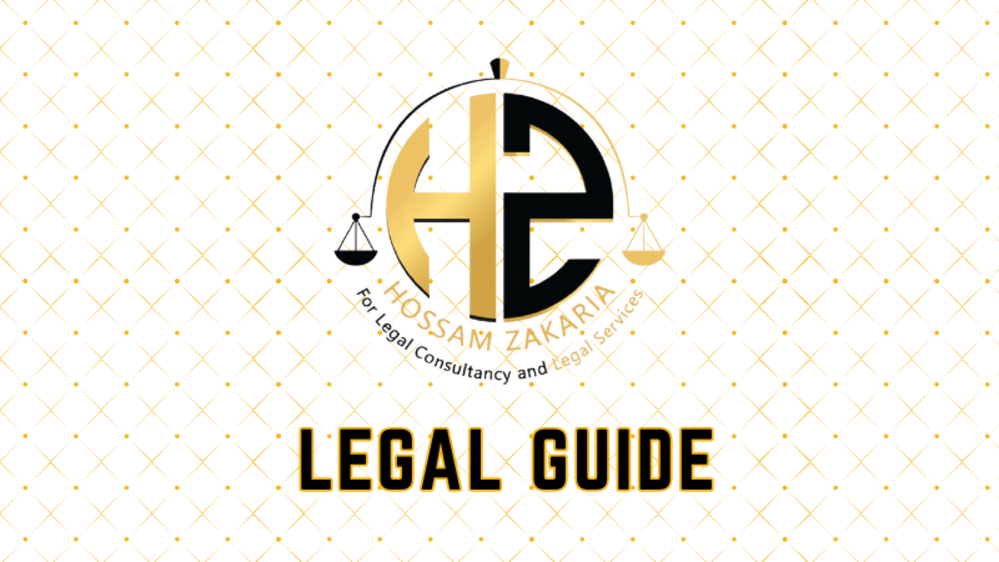Introduction
Arbitration continues to be at the forefront of commercial dispute resolution in the United Arab Emirates (UAE), reflecting the nation’s commitment to fostering a business-friendly legal environment aligned with international best practices. The capacity to efficiently recognize and enforce arbitral awards is a cornerstone of commercial confidence and cross-border investment—particularly as the UAE positions itself as a global commercial and financial center. This article provides an in-depth consultancy-grade analysis of “navigating arbitral awards and enforcement in UAE law,” considering the latest legal developments, potential business risks, and compliance strategies essential for 2025 and beyond.
With substantial reforms in recent years, notably the issuance of Federal Law No. 6 of 2018 on Arbitration (the “UAE Arbitration Law”) and ongoing judicial practice enhancements, stakeholders must understand both the letter and spirit of these reforms. The evolving legal landscape is equally relevant for local and international businesses, HR managers, in-house legal teams, and executives involved in contract negotiation or dispute management. The purpose of this article is not only to examine the key legal frameworks but also to provide actionable consultancy insights to proactively manage risks and maximize opportunities.
Table of Contents
- Legal Framework for Arbitration in the UAE
- Understanding Arbitral Awards: Scope and Types
- The Process of Recognizing and Enforcing Arbitral Awards in the UAE
- Challenges to Arbitral Awards and Grounds for Setting Aside
- Recent Legal Updates and Key Judicial Developments (2023-2025)
- Key Compliance Risks and Mitigation Strategies
- Case Study: Enforcing a Foreign Arbitral Award in Dubai Courts
- Comparative Analysis: Old and New UAE Arbitration Framework
- Practical Guidance for Businesses and Legal Teams
- Conclusion: Outlook for Arbitration and Legal Best Practices in the UAE
Legal Framework for Arbitration in the UAE
Federal Law No. 6 of 2018 (UAE Arbitration Law)
The UAE’s foundational law governing arbitration is Federal Law No. 6 of 2018, officially named the “Federal Law on Arbitration.” This law replaced the outdated arbitration provisions of the UAE Civil Procedures Law and harmonized UAE arbitration practice with the UNCITRAL Model Law. The Arbitration Law is supplemented by key Cabinet Resolutions and Ministerial Circulars issued by the UAE Ministry of Justice.
Key features include:
- Recognition of party autonomy in choosing arbitration rules, seat, and procedures.
- Clarity on the validity of arbitration agreements, including through electronic means.
- Explicit provisions for interim and conservatory measures.
- Clear procedures for enforcement, annulment, and recognition of arbitral awards.
- Alignment with international conventions, such as the 1958 New York Convention (acceded by the UAE in 2006).
Specialized Arbitral Institutions in the UAE
Key arbitral institutions operating under the UAE legal framework include:
- Dubai International Arbitration Centre (DIAC)
- Abu Dhabi Commercial Conciliation and Arbitration Centre (ADCCAC)
- Sharjah International Commercial Arbitration Centre
- International Chambers (DIFC-LCIA until March 2022, now DIAC-DIFC)
Each brings specific rules and best practices. Arbitration proceedings seated in free zones (DIFC, ADGM) may benefit from their own common law-based arbitration frameworks, extending jurisdictional options for parties.
Understanding Arbitral Awards: Scope and Types
Definition and Types of Arbitral Awards
An arbitral award is the final, binding decision rendered by a duly constituted arbitral tribunal. Awards may address all or some issues in dispute and may be final, partial, or interim. Under Article 41 of the UAE Arbitration Law, all arbitral awards must be issued in writing, signed by the arbitrators, and state the reasons unless parties have agreed otherwise.
- Final awards: Conclude the arbitration, disposing of all substantive claims.
- Partial awards: Address specific claims, pending resolution of others.
- Interim awards (Provisional Measures): Temporarily preserve the status quo or protect assets until the final award.
Legal Effect of Awards in the UAE
Subject to successful enforcement, the UAE courts treat arbitral awards with the same force and effect as final court judgments. However, awards are subject to scrutiny by local courts to ensure compliance with procedural and public policy standards under UAE law (Article 52, Arbitration Law).
The Process of Recognizing and Enforcing Arbitral Awards in the UAE
Domestic and Foreign Arbitral Awards: Enforcement Pathways
The enforcement process depends on whether the award is domestic (UAE seated) or foreign (seated outside the UAE). Recent reforms have substantially streamlined both categories, but practical distinctions remain.
Enforcement of Domestic Arbitral Awards
- Submission of Award: The successful party submits the original or certified copy, together with the arbitration agreement, to the UAE court with jurisdiction (usually the Court of First Instance in the seat’s emirate).
- Summary Proceedings: Article 55 establishes efficient, summary procedures. The court must render its judgment within 60 days, absent grounds for refusal.
- Limited Court Review: The court reviews for procedural regularity and public order, not re-examining merits.
Enforcement of Foreign Arbitral Awards
- Applicability of New York Convention: As a member since 2006, UAE courts generally observe pro-enforcement standards for foreign arbitral awards rendered in other Convention states.
- Filing for Exequatur: A formal request is made to the UAE Court of Appeal (or, in Dubai, to the specialised Execution Court), together with duly translated and attested documents, in accordance with Cabinet Resolution No. 57 of 2018.
- Public Order Examination: The award will not be re-examined on merits, but the court confirms compliance with UAE procedural and public order standards.
Suggested Visual: UAE Arbitral Award Enforcement Flow Diagram
(Recommend showing a visual process flowchart illustrating the parallel processes for domestic and foreign award enforcement through UAE courts.)
Challenges to Arbitral Awards and Grounds for Setting Aside
Legal Grounds for Annulment
The grounds for challenging an arbitral award are exclusively set out in Article 53 of the UAE Arbitration Law. Courts are prohibited from rehearing the merits of the dispute. Valid grounds include:
- Lack of a valid arbitration agreement.
- Irregular tribunal constitution or procedural violations affecting due process.
- Incapacity of a party or lack of legal capacity of a signatory.
- Tribunal exceeded powers.
- Award contradicts UAE public order or morals.
- Non-compliance with formal requirements (eg, absence of signatures, reasons, or word limits).
Strict Time Limits
An application to annul an arbitral award must be presented within 30 days of notice of the award (Article 54). The court must decide on annulment applications within 60 days, a significant improvement from earlier, protracted timelines.
Case Law Developments
The Dubai Court of Cassation has increasingly affirmed a “minimal intervention” standard, refusing to annul awards for minor procedural defects. Notably, in Case No. 707/2020 (Dubai Court of Cassation), the court upheld enforcement despite technical objections, emphasizing respect for party autonomy and the finality of arbitral awards.
Recent Legal Updates and Key Judicial Developments (2023-2025)
Several key legal and procedural changes have shaped arbitration in the UAE since 2023:
- Amendments to Arbitration Rules: DIAC and ADCCAC have revised their institutional rules, offering expedited procedures, digital hearings, and increased arbitrator diversity.
- Court Reforms: Introduction of more specialized commercial and execution courts, reducing enforcement times and increasing predictability.
- Ministerial Guidance (2024): The Ministry of Justice issued Circular No. 1/2024, clarifying requirements for digital evidence in arbitration and supporting e-signatures.
- Judicial Cooperation: Emirates courts and free zone courts (e.g., DIFC, ADGM) now maintain greater cooperation, allowing parties to opt for offshore courts as “host” forums for enforcement in mainland UAE under the dual-track enforcement system.
Comparison Table: Key Changes in UAE Arbitration Law
| Aspect | Pre-2018 (Old Regime) | Post-2018 & 2025 Updates (Current Law) |
|---|---|---|
| Applicable Law | Civil Procedures Law (Federal Law No. 11/1992), limited arbitration provisions | Dedicated UAE Arbitration Law (Federal Law No. 6/2018) |
| Enforcement Process | Complex, often full retrial before Court | Expedited, summary enforcement, limited grounds for refusal |
| Annulment Timeframe | Open-ended, lengthy appeals possible | Strict 30-day challenge and 60-day court decision deadlines |
| Recognition of Electronic Evidence | No provision, risk of rejection | Explicitly recognized (Circular No. 1/2024) |
| Public Policy Grounds | Broadly interpreted, unpredictability | Narrower interpretation, in line with global arbitral practice |
Key Compliance Risks and Mitigation Strategies
Business and Legal Risks of Non-Compliance
- Invalid Arbitration Agreement: Failure to fulfill formal requirements (e.g., no written agreement, unauthorized signatories) exposes parties to jurisdictional attacks and lost arbitration rights.
- Improper Notification: Insufficient or ambiguous service of proceedings undermines enforceability.
- Non-compliant Enforceability: Failing to follow prescribed enforcement procedures can cause critical delays—even outright refusal by courts.
- Breach of Public Order: Terms or outcomes that conflict with mandatory UAE law or public policy may result in annulment.
- Inefficiency in Evidence Handling: Mishandling electronic evidence or failing to properly translate documents as required by Ministerial Circulars can prejudice enforcement.
Mitigation and Best Practices
- Use explicit, well-drafted arbitration clauses, clearly designating seat, language, institution, and applicable law.
- Ensure signatories are duly authorized and agreements are in writing (including recognized electronic forms).
- Adopt robust notification and document management tools, incorporating electronic communication protocols.
- Conduct pre-arbitration assessments to ensure dispute scope and contract terms comply with UAE public policy.
- Engage UAE-experienced counsel to manage translation, certification, and compliance with Ministerial edicts.
Suggested Visual: Arbitration Compliance Checklist Table
(Recommend a visual table or checklist formatting—see below example.)
| Checklist Item | Recommended Action |
|---|---|
| Arbitration Clause Validity | Review and update all contracts; ensure explicit compliance |
| Document Retention | Digitally archive all arbitration-related documents and correspondence |
| Procedural Deadlines | Calendar key challenge and enforcement deadlines |
| Public Policy Compliance | Conduct legal review of all substantive claims and remedies |
Case Study: Enforcing a Foreign Arbitral Award in Dubai Courts
Hypothetical Scenario
Background: An international construction company (“ClientCo”) secures a foreign arbitral award in its favor against a UAE entity for breach of contract. The seat of arbitration was London, and the award is issued under ICC Rules.
Enforcement Steps in the UAE:
- ClientCo appoints UAE counsel to file an enforcement petition to the Dubai Court of First Instance.
- Filed documents include the notarized award, verified translation, and proof of prior notification to the losing party.
- The Court, applying the “summary proceedings” per Article 55, reviews limited grounds (e.g., public order, proper notice).
- Within 60 days, the Court issues a judgment recognizing and enforcing the award; any appeal by the losing party is restricted to those limited grounds.
This streamlined procedure exemplifies how the UAE courts have shifted toward efficient, pro-enforcement stances, consistent with New York Convention obligations and the objectives of Federal Law No. 6 of 2018.
Comparative Analysis: Old and New UAE Arbitration Framework
Incremental Improvements and Continuing Challenges
| Issue | Old Framework (Pre-2018) | Current Framework (2018-2025) |
|---|---|---|
| Enforcement Duration | Up to 24+ months, subject to de novo review | Average 60-120 days, subject to summary proceedings only |
| Electronic Evidence | Unrecognized, often inadmissible | Explicitly permitted (Circular No. 1/2024) |
| Recognition of Free Zone Awards | Uncertain, sometimes inconsistent | Coordination mechanisms with DIFC/ADGM courts, bolstering certainty |
| Interim Relief | Limited, uncertain enforceability | Direct recognition and enforcement under Federal Law No. 6/2018 |
| Appeal Rights | Broad right of appeal, substantive reconsideration | Annulment on narrow, enumerated grounds only |
Practical Guidance for Businesses and Legal Teams
Proactive Contracting Strategies for UAE Arbitration
- Ensure enforceability from the outset: Engage legal counsel familiar with both local and international arbitration best practices when negotiating and drafting arbitration clauses.
- Specify the seat and rules: Designate preferred arbitration institutions (e.g., DIAC, ICC), seat, and language in all contracts to avoid later ambiguity.
- Maintain updated records: Archives should include signed contracts, correspondence, e-signature records, and electronic evidence, in compliance with the latest Ministerial and Cabinet guidance.
- Monitor local procedural updates: Regularly review updates from official sources—including the UAE Ministry of Justice, Federal Gazette, and arbitral institutions.
- Respond rapidly to disputes: Initiate and respond to notices quickly, maintaining a full written record to defend enforcement if necessary.
Institutional Insights: Choosing the Right Arbitral Forum
Businesses active in the UAE should assess:
- Commercial sector and subject matter: Certain sectors (energy, construction) may benefit from specific institutional rules or panels.
- Location of assets: Consider where enforcement may ultimately be needed—onshore, DIFC, ADGM, or internationally.
- Risk appetite and typical counterparties: Multinational deals may require more robust, internationally recognized rules (e.g., ICC, LCIA); purely domestic contracts may prefer DIAC or ADCCAC.
Cooperation with Free Zone and Onshore Courts
The dual-track enforcement regime, allowing parties to benefit from either free zone or onshore enforcement, is unique to the UAE and should be strategically leveraged based on the circumstances of each dispute.
Conclusion: Outlook for Arbitration and Legal Best Practices in the UAE
The UAE’s commitment to modernizing arbitral practice and harmonizing with global enforcement standards is unambiguous. Businesses can now rely on prompt recognition and enforcement of arbitral awards—domestic and foreign—provided they observe the procedural and substantive requirements elucidated above.
Looking forward, mindful compliance with Federal Law No. 6 of 2018, Ministerial and Cabinet guidance, and institutional protocols will be critical as the UAE continues to enhance its reputation as a pro-arbitration jurisdiction. The convergence of local, free zone, and international standards—coupled with a robust court system—offers significant opportunities for dispute resolution efficiency and predictability. Proactivity in contract drafting, compliance management, and dispute preparedness will ensure UAE-based organizations and their foreign partners navigate arbitral awards and enforcement safely and effectively in 2025 and beyond.
Consult with UAE-experienced legal professionals early and often, particularly as rapid legislative and procedural updates may significantly impact individual outcomes. Adopting these best practices will position businesses to operate confidently, minimizing litigation risk while optimizing legal certainty in the UAE’s vibrant commercial landscape.



